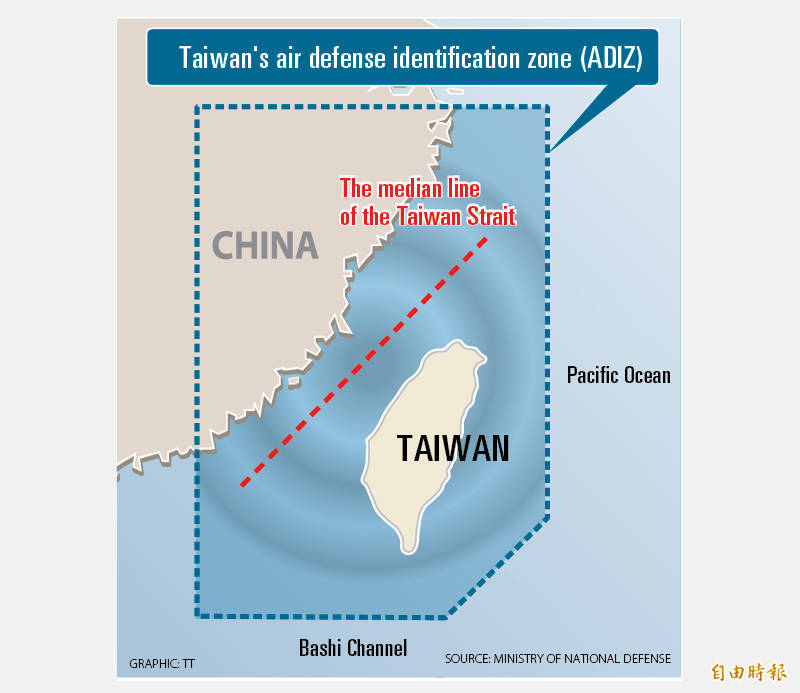《TAIPEI TIMES》 Experts mull ‘normalized’ China drills
BLOCKADE RUNNERS: The military should prepare to cope with a possible blockade of Taiwan, and the latest drills give China a new basis for exercises, security experts said
By Aaron Tu and Liu Tzu-hsuan / Staff reporter, with staff writer and agencies
\\192.168.5.8\news\ok_retouch_folder\20220808\p03-220808-NEWgraphic .jpg
\\192.168.5.8\news\ok_retouch_folder\20220808\P03-220808-007.jpg
Taiwan should pay close attention to whether China will normalize military drills around the nation, experts said yesterday, adding that the military must devise coping strategies.
China from Thursday to yesterday conducted its largest-ever military exercises around Taiwan in retaliation for a visit last week by US House of Representatives Speaker Nancy Pelosi, who is the highest-ranking US official to visit Taiwan in 25 years.
Although the nation’s armed forces have won public support by condemning the Chinese People’s Liberation Army (PLA) for bullying Taiwan, the military should bolster its capabilities, Institute of National Defense and Security Research research fellow Su Tzu-yun (蘇紫雲) said yesterday.
For example, while Taiwan has certain levels of food and energy reserves, in the event of a Chinese blockade, the nation would need naval vessels that can break through the siege and escort cargo ships, he said.
The military should continue to improve its missile technology and develop asymmetric and conventional warfare capabilities, he added.
Chinese commentators had said the latest drills could invalidate the median line of the Taiwan Strait, as well as Taiwan’s territorial waters and its energy lifeline, adding that the PLA could establish lockdown zones, no-fly zones and war patrol zones.
Su said that the drills could not achieve any of those goals, adding that entering Taiwan’s territorial waters is not easy and the nation would protect its energy lifelines if a war were to break out.
“Beijing should not misjudge the situation,” he added.
Security experts have said Chinese military planners have long discussed a blockade of Taiwan, but most likely see such a move as too provocative.
During the latest drills, China fired missiles over Taipei, flew drones over Taiwan’s outlying islands, sent warships across the median line of the Strait and virtually surrounded Taiwan proper in what the nation’s military said amounted to a “blockade practice.”
“These actions in effect changed the status quo of Taiwan’s security,” said Li Mingjiang (李明江), an associate professor at the S. Rajaratnam School of International Studies in Singapore.
“This gives China’s military a new basis from which to push more boundaries in future exercises,” he said.
The show of capability and resolve comes from a PLA that is far more formidable than the one during the Third Taiwan Strait Crisis in 1996, the last time it fired missiles into waters near Taiwan.
Although Taiwanese, jaded by decades of Chinese threats, appeared unfazed by the drills, some observers said Taiwan’s military leaders might be worried.
Chang Jung-feng (張榮豐), who was deputy secretary-general of the National Security Council during the 1996 crisis, told local media that the drills could be a preview of a Chinese invasion scenario.
Although China might have edged closer to using force against Taiwan, most experts do not believe a war is imminent.
“Invasion within this decade is far from certain to succeed. Failure would spell the end of [Chinese President] Xi Jinping (習近平), his dream and possibly the Chinese Communist Party,” said Charles Parton, a retired British diplomat.
Xi, who has not spoken publicly about Pelosi’s visit, but as chairman of the Central Military Commission is effectively the PLA’s commander-in-chief, would be well aware of the risks of action, experts say.
“China would have hoped that these drills could somehow stop the trend of the US, Europe and many other countries becoming more sympathetic to Taiwan,” Li said. “So far, that effect remains to be seen.”
新聞來源:TAIPEI TIMES

A Rui Yuan (Sharp Hawk) long-range surveillance drone waits to take off from a base in Pingtung County’s Hengchun Township yesterday. Photo: Chen Yen-ting, Taipei Times




















